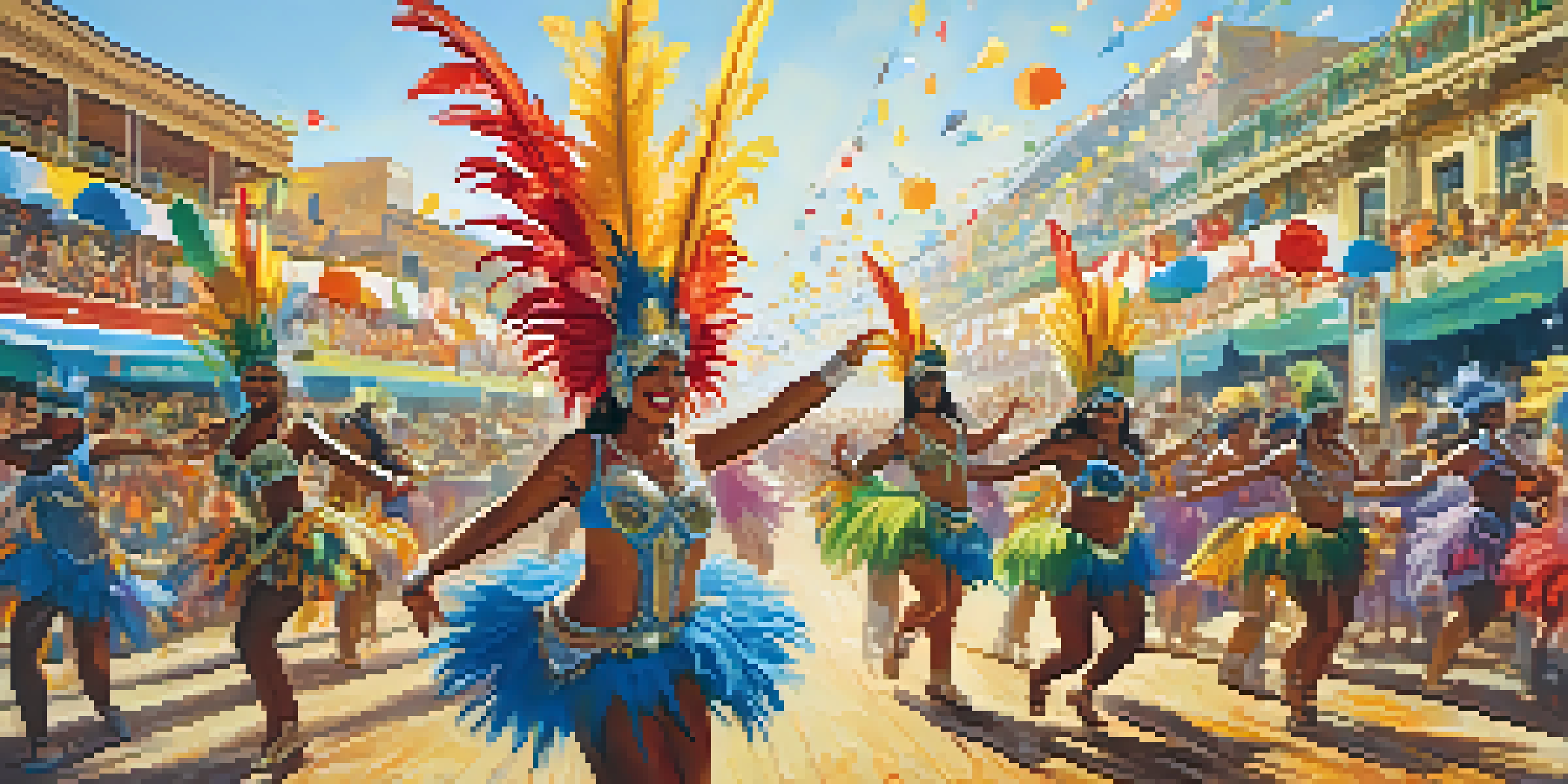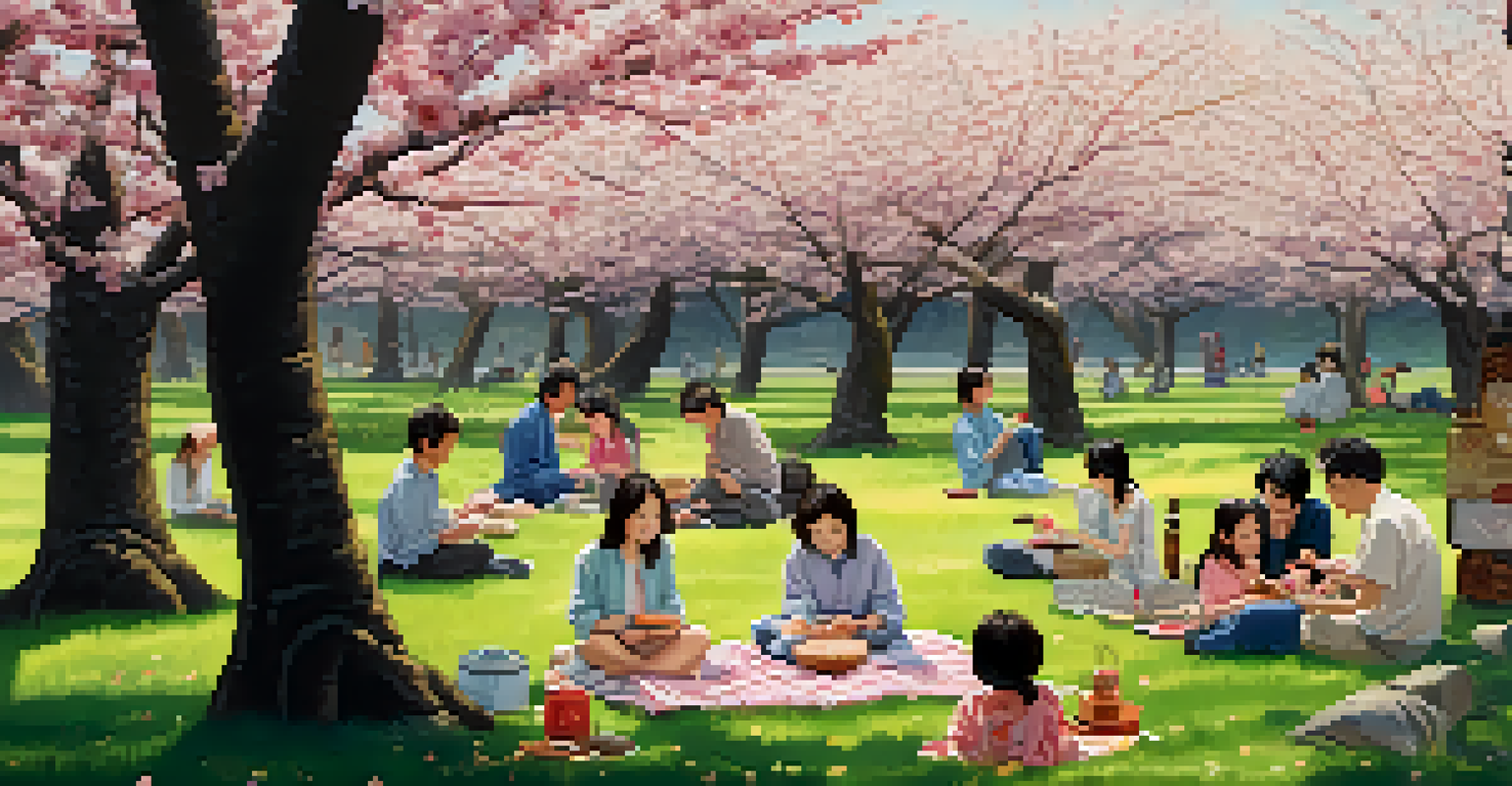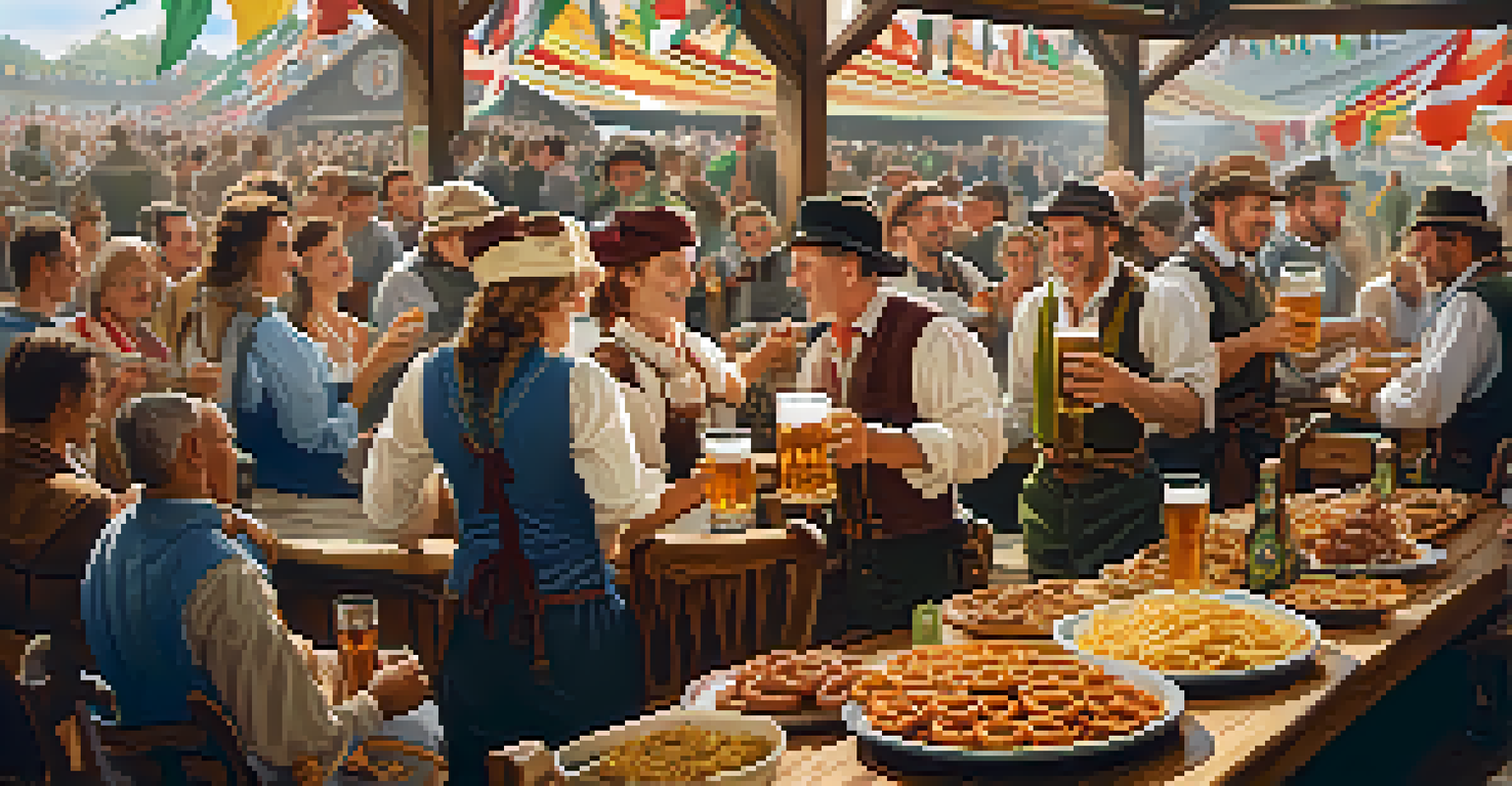Cultural Festivals: Immerse Yourself in Local Traditions

What Are Cultural Festivals and Why Do They Matter?
Cultural festivals are celebrations that showcase the unique traditions, art, and heritage of a community. They offer a vibrant way for locals and visitors alike to connect with the history and spirit of a place. Think of them as a colorful tapestry where every thread represents a different aspect of a culture, woven together to tell a story.
Culture is the widening of the mind and of the spirit.
These festivals often include music, dance, art, and food, providing an immersive experience that can be both enlightening and entertaining. They serve as a reminder of the values and customs that shape a community's identity. By participating in these gatherings, we not only gain insight into different cultures but also foster a sense of unity and appreciation for diversity.
Moreover, cultural festivals can significantly boost local economies by attracting tourists and encouraging the sale of local crafts and cuisine. This economic impact helps sustain traditions for future generations. So, whether you're a traveler or a local, engaging in these festivities is a win-win for everyone involved.
Top 5 Cultural Festivals Around the World
While countless cultural festivals take place globally, a few stand out for their unique charm and significance. For example, the Rio Carnival in Brazil is a dazzling display of samba music, elaborate costumes, and parades that attract millions every year. It’s a celebration of life that brings people together in joyous revelry.

Another festival worth mentioning is Diwali, the Festival of Lights celebrated in India. This five-day festival symbolizes the victory of light over darkness and good over evil, marked by lighting lamps, sharing sweets, and family gatherings. Each home glows with hope and joy, creating a magical atmosphere.
Cultural Festivals Unite Communities
Cultural festivals bring locals and visitors together, fostering appreciation for diverse traditions and creating a sense of belonging.
In Japan, the cherry blossom festival, or Hanami, celebrates the fleeting beauty of sakura flowers. Families and friends gather under blooming trees to enjoy picnics, appreciating nature's beauty while reflecting on the transient nature of life. Each of these festivals offers a unique glimpse into the culture and values of the community.
Food as a Cultural Connector in Festivals
Food is often at the heart of cultural festivals, serving as a delicious bridge between people and traditions. Each dish tells a story, reflecting the history and heritage of a region. For instance, during the Oktoberfest in Germany, the aroma of pretzels and sausages fills the air, inviting everyone to indulge in local flavors.
Festivals are a time for joy and celebration, a chance to pause and appreciate the rich tapestry of traditions that shape our lives.
In many cultures, specific foods are tied to festivals, symbolizing abundance, prosperity, or celebration. The preparation of these dishes often involves traditional methods passed down through generations, adding layers of meaning to the experience. Sharing a meal during a festival fosters community and a sense of belonging among participants.
Exploring local cuisine during a festival is not just about tasting food; it's about understanding the culture and the values it represents. When you savor a dish, you’re also partaking in the stories and memories of those who created it, making your festival experience even richer.
Music and Dance: The Pulse of Cultural Festivals
Music and dance are essential components of cultural festivals, acting as expressions of joy, history, and community spirit. They bring people together, encouraging participation and celebration. Whether it’s the rhythmic beats of African drums or the elegant movements of ballet, each performance tells a story that resonates with the audience.
Many festivals feature traditional music and dance forms that have been passed down through generations. These art forms serve as a living history, preserving the essence of a culture while adapting to contemporary influences. Engaging with these performances can deepen your understanding of a community's values and emotions.
Food Connects People and Traditions
Food at cultural festivals serves as a delicious bridge, reflecting the history and heritage of a region while fostering community connections.
Moreover, participating in dance or music at a festival can be a liberating experience. It breaks down barriers, allowing people from different backgrounds to connect through the universal language of rhythm and melody. It’s a reminder that, despite our differences, we can all find common ground through the joy of dance and music.
Art and Craft: The Visual Storytelling of Cultures
Art and craft are integral to cultural festivals, showcasing the creativity and craftsmanship of local artisans. From intricate textiles to beautiful pottery, these creations reflect the values and stories of the culture they represent. Visiting craft stalls at festivals allows you to appreciate the skill and dedication behind each piece.
Many festivals also include art installations and exhibitions that celebrate the theme of the event. These visual representations often spark conversations and inspire reflection on cultural identity and heritage. By engaging with these artworks, festival-goers gain a deeper appreciation for the artistic traditions of a community.
Moreover, purchasing handmade crafts supports local artists and helps preserve traditional techniques. It’s a tangible way to take a piece of the culture home with you, serving as a reminder of the vibrant experiences and connections made during the festival.
The Role of Community in Cultural Festivals
Community involvement is vital to the success of cultural festivals, as they are often organized and celebrated by locals. This collective effort fosters a sense of pride and ownership, making the festival a truly authentic experience. When you attend a festival, you’re not just an observer; you’re part of a larger narrative woven by the community.
Moreover, festivals provide a platform for cultural exchange, where different groups within a community can share their traditions and practices. This exchange enriches the festival experience, allowing for greater understanding and appreciation of diverse cultures. It’s a beautiful reminder that our differences can unite us in celebration.
Art and Music Reflect Cultural Identity
Art and music at festivals showcase the creativity and spirit of a culture, providing a platform for storytelling and emotional connection.
By participating in local festivals, you help strengthen community bonds and support the preservation of traditions. It’s an opportunity to engage with your neighbors, learn from one another, and celebrate what makes your community unique. In this way, cultural festivals become a living testament to the vibrancy of local life.
How to Prepare for a Cultural Festival Experience
Preparing for a cultural festival is all about embracing the experience and being open to new adventures. Start by researching the festival's history and significance to gain a deeper appreciation for what you’ll witness. Understanding the cultural context can enhance your experience and help you engage more meaningfully with the festivities.
Don’t forget to dress appropriately for the occasion! Many festivals encourage traditional attire, which can be a fun way to immerse yourself in the culture. Wearing local garments not only shows respect but also allows you to feel a connection to the community you’re visiting.

Lastly, come with an open mind and a willingness to participate. Engage with locals, try new foods, and join in on dances or activities. The more you immerse yourself in the experience, the richer your understanding of the culture will be, leaving you with memories that last a lifetime.